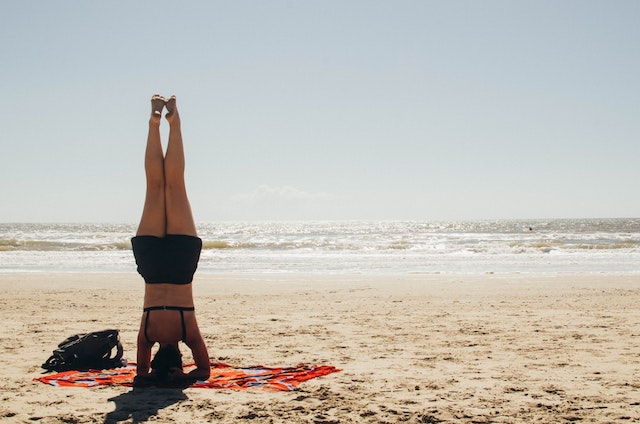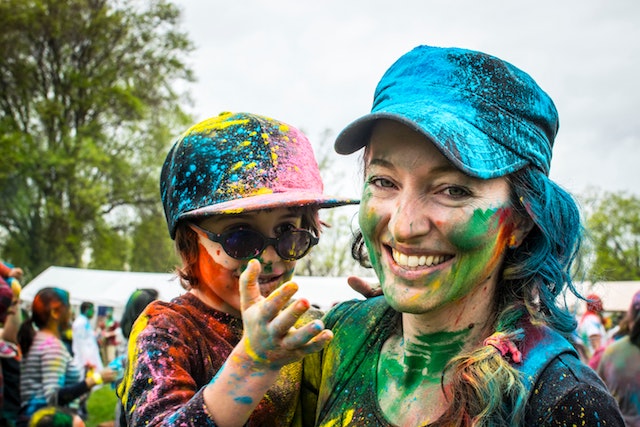Unlock the Magic in Your Story Now
Get the Free 20 questions to Ask Before Launching Your Idea workbook when you sign up for occasional updates.
Get the Free 20 questions to Ask Before Launching Your Idea workbook when you sign up for occasional updates.
Articles filed in: Success
Walking As Yourself
 The legendary British actress, Helen Mirren, says the hardest thing you can do is walk as yourself. She may have been speaking about acting when she said this, but I think her words carry wisdom we can use beyond the stage.
The legendary British actress, Helen Mirren, says the hardest thing you can do is walk as yourself. She may have been speaking about acting when she said this, but I think her words carry wisdom we can use beyond the stage.
Society conditions us to fit in from a young age. The way to fit in is not to do anything out of the ordinary. By definition, that means ignoring possibilities and opportunities to explore different paths.
But progress, fulfilment and joy are a by-product of exploration.
Ironically, what the world that tries to make us conform needs most from us, is for us to walk as ourselves. To contribute as only we can. To find our voice and follow our path, then to shine a light for others as we go.

Images by Paz Arando
Trust And Traction
 When we want to get a project off the ground, we are often confused about the best way to achieve our goal.
When we want to get a project off the ground, we are often confused about the best way to achieve our goal.
We believe if we could only reach more people, we’d immediately have traction.
But reach is a poor substitute for the trust of a handful of the right people.
A deep connection trumps fleeting attention every time.
Image by Daniel Funes Fuentes
A Stake In The Ground
filed in Meaningful Work, Strategy, Success

Years ago, when the owner of our local bakery decided to bake only gluten-free bread and cakes, it would have sounded like a risky strategy. Many people would have advised her to sell both conventional baked goods alongside her gluten-free loaves. Instead, she put a stake in the ground.
We are naturally inclined to want to hedge our bets. But it can be liberating to say this is the real work I care about doing. These are the exact people I want to serve.
Those decisions about what’s important to us and how to do our best work can mean the difference between standing out and fitting in. Joy and misery. Success and failure.
Whatever work you do, it’s helpful to reflect on who you want to be to whom.
Image by Maranda Vandergriff
Storytelling For The Rest Of Us
filed in Story Skills, Storytelling, Success

Every decision you’ve ever made was influenced by a story—every single one. From the decision about whether to wear a mask during a pandemic, to the charities you choose to support.
A story you heard, the story you believed or that story you told yourself, had an impact on those choices.
If stories are our most persuasive technology, why don’t we do more to put them to work? Why don’t we leverage the power of stories every day in our work and our lives?
Over the past fifty years, we’ve come to believe that storytelling is a professional discipline. A skill for the master storytellers at the Disney’s or the Saatchi and Saatchi’s of the world. We’ve stopped honing the story skills that came so naturally to our ancestors. We’ve forgotten how to tell small, powerful, everyday stories.
I’m on a mission to change that and to help more people leverage the power of storytelling to become their most inspiring selves.
You don’t need an epic story to be a great storyteller. You just need to adopt the posture of a storyteller and to practice the craft. Together with a team of incredible coaches, that’s what I’ve been helping people to do for the past year.
If you want to reclaim your story skills, you can sign up for details about our next workshop.
Image by Photo by Niko Virtanen license Creative Commons BY
We Learn By Doing
filed in Story Skills, Strategy, Success

When my sons were younger, they loved listening to the straight-talking comedian and radio presenter, Karl Pilkington. One of their favourite Pilkington quotes is:
‘You won’t get anything done by planning.’ They often quoted it to me during exam times when I made hints about the benefits of revision timetables.
I’m not sure if Pilkington ever explained what he meant when he said this, but there’s wisdom in his words. Plans are a necessary starting point for any project. But plans and projections alone won’t get us to where we want to go.
We learn what’s next by making a start, with a leap of faith—by taking that first step.
We build on our experience, not our plans.
We learn by doing.
Image by David Brooke Martin
When Things Catch On
filed in Story Skills, Strategy, Success

When things catch on, we often assume that their success happened en masse and out of the blue. One day an idea is invisible to us, the next it’s everywhere.
The truth about ideas that fly is that they gain traction in increments.
One story, one believer, one advocate at a time.
We earn the right to speak to more people by delighting the first one.
Image by Ketan Rajput
Trusted Over Time
filed in Meaningful Work, News, Strategy, Success

We often hear it said that it’s hard to stand out in an increasingly competitive world.
Maybe you can’t be the biggest, fastest or cheapest in your field. But there are plenty of ways to differentiate and make a mark. First among them is by being trusted over time.
Make promises you intend to keep. Keep them.
Image by Zdeněk Macháček
On Influence
filed in Story Skills, Success, Worldview

Many of us go through life feeling powerless to change things. After all, not everyone has leadership status or power conferred upon them. We sometimes believe that influence is a top-down construct—that we can have the most influence from a position of authority.
Let’s challenge that assumption.
Think about someone whose impact helped change how you see the world.
My uncle Larry was that person for me. He was the youngest of my grandmother’s eleven children—born with a genetic disorder that caused many health issues throughout his life and his premature death. Larry never knew his father, who died as he lay sleeping in bed next to him and my grandmother when he was a year old.
When he was thirteen, Larry’s headmaster told him he was too tall to be at school and instructed him to leave. That was the end of his formal education. It was hard for him to find manual work because he was often sick. He learned to love reading and was curious about the world. He chain-smoked and spent hours tinkering with big motorbikes.
Larry introduced me to the library when I was seven. I grew up in a house with no books, so joining the library changed everything. Larry was the one who unlocked the magic of books for me. He taught me to play chess and ride a bike without training wheels. When I went with him to his outpatient hospital appointments, we sat in the canteen over lukewarm tea and Club Milk biscuits watching doctors and nurses coming and going in the corridors. ‘You could be a doctor or a nurse one day,’ Larry said. He was the person who encouraged me to expect the most for and from myself.
I’m willing to bet the people who’ve had an impact on you rarely had the authority to do so. Each one of us, regardless of our status, can choose to be an encourager—an agent of possibility for others.
Image by Seth Stoll
Raising The Bar

When I was a teenager, I joined the local athletic club. I’d never been much of a runner, but since I went to an all-girls school, the draw of the athletic club where boys hung out was abundantly clear. It was time to dust off my running shoes.
The worst thing about contemplating long-distance running wasn’t starting—it was not knowing if I had the stamina to finish. I was never sure if a stitch or a cramp would stop me from completing the requisite number of laps around the track. So, I opted-out and choose to take part in the distances and events I knew I could at least safely complete.
On the one hand, that sounds like a decent strategy. No sense in starting something if you’re not sure you can succeed when there are other, safer options open to you. But if we only did the things we were sure would work, we’d end up limiting our potential and stifling our growth.
No matter what project we’re embarking on, it’s tempting to lower the bar so we can be certain of a successful outcome before we begin. Alternatively, we can choose to find joy in the effort of exceeding our expectations.
Image by Markus Spiske
On Experience
filed in Meaningful Work, Strategy, Success

Every time we approach a new problem we believe we have to come at it with fresh eyes. Sometimes that is true. But we mustn’t ignore our lived experience.
Whatever challenge or goal is in front or ahead of us, it’s worth remembering the resources we called on to get where we needed or wanted to go in the past.
We can still call on them today.
Our past resourcefulness gives us insights we can leverage now and in the future.
Image by Jukan Tateisi